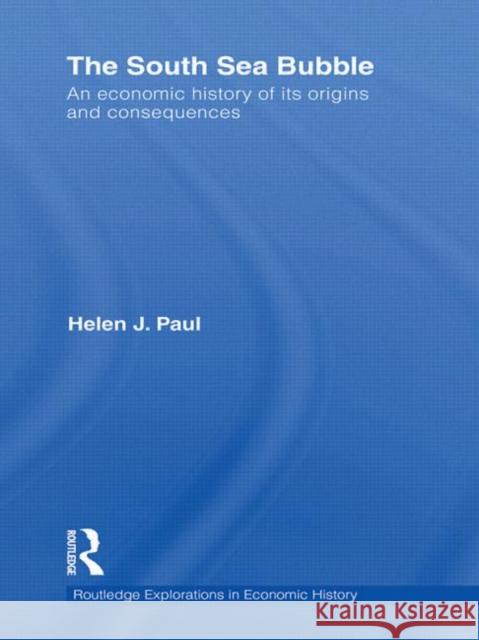The South Sea Bubble: An Economic History of Its Origins and Consequences » książka
The South Sea Bubble: An Economic History of Its Origins and Consequences
ISBN-13: 9780415469739 / Angielski / Twarda / 2009 / 176 str.
The South Sea Bubble: An Economic History of Its Origins and Consequences
ISBN-13: 9780415469739 / Angielski / Twarda / 2009 / 176 str.
(netto: 720,05 VAT: 5%)
Najniższa cena z 30 dni: 730,42
ok. 22 dni roboczych.
Darmowa dostawa!
The book is an economic history of the South Sea Bubble. It combines economic theory and quantitative analysis with historical evidence in order to provide a rounded account. It brings together scholarship from a variety of different fields to update the existing historical work on the Bubble. Up until now, economic history research has not been integrated into mainstream histories of 1720. Technical work on share prices and ledgers has been inaccessible to a wider audience. As well as providing new evidence against the gambling mania argument, the book also interprets the existing economic history scholarship for non-specialists.
The South Sea Bubble of 1720 is a famous morality tale. Shares in the South Sea Company rose steeply in price. The whole stock market followed. Share prices then crashed and the resulting furore was exploited by Robert Walpole in his bid for power. The South Sea Company was accused of fraudulently leading gullible investors to waste their money on a slaving project which could not work. It has been assumed that the investors were struck by a gambling mania. However, this classic story has questioned by financial historians.
This book makes the lessons from financial theory comprehensible to non-specialists. It combines these insights with qualitative evidence to show how the Georgians actually behaved. It explains why a bubble could occur without a gambling mania being to blame. There are strong reasons why investors would be attracted to the company and to share-trading. They include the possibilities of gain from the slave trade and smuggling into Spanish America. However, there were reasons for the public outcry. Behavioural finance shows that people complain more about losses than an equivalent gain.











